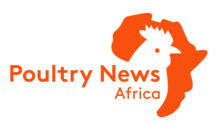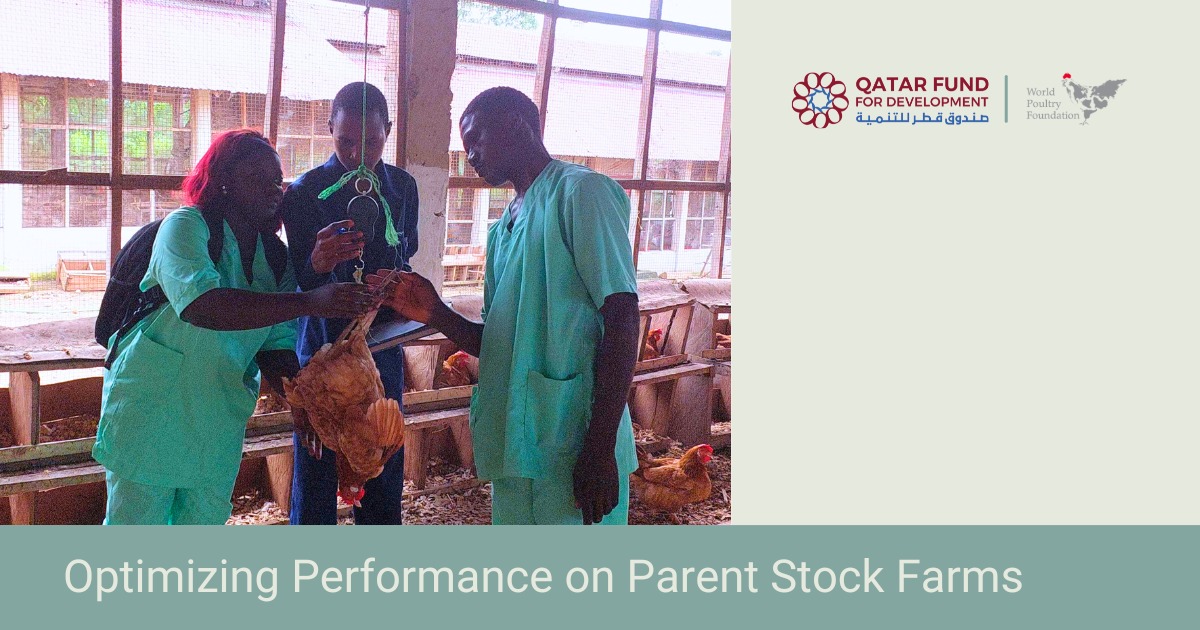Regular bird weighing is increasingly being recognized as one of the simplest yet most effective management practices in modern poultry farming. It offers a reliable way to monitor flock performance, detect growth irregularities, and ensure that birds are developing according to standard growth targets. At Leecon Poultry Company Ltd in Sierra Leone, this vital management practice was recently emphasized during a comprehensive training session at the company’s Parent Stock Farm. The session was facilitated by Joe Antonio from the World Poultry Foundation (WPF), who conducted a detailed and practical demonstration on bird weighing, growth tracking, and data interpretation — all essential tools for achieving stronger field performance and higher productivity.
The training, attended by farm supervisors, stock attendants, and technical officers, aimed to enhance the farm’s capacity to collect accurate production data and use it for better management decisions. Antonio introduced the participants to correct bird handling techniques during weighing to minimize stress and ensure consistency. He demonstrated how to use standard scales, calibrate weighing equipment for precision, and record data systematically. Participants were also taught how to analyze the data to identify trends and connect those findings to other production areas such as egg size, egg production, and feed efficiency.
One of the core messages of the session was that weighing birds regularly provides valuable insights into flock health and development. By comparing the recorded weights against breed-specific growth charts, farmers can immediately identify birds that are growing too slowly or too quickly. Such discrepancies often indicate underlying issues like nutritional imbalances, poor feed conversion, disease, or environmental stressors such as temperature fluctuations. Detecting these issues early allows for prompt corrective action — adjusting feed rations, improving ventilation, or enhancing biosecurity — ultimately preventing losses and ensuring optimal flock performance.
Joe Antonio also explained the close relationship between body weight and egg production. Hens that maintain ideal body weight throughout their laying cycle tend to produce consistent egg sizes and sustain high production rates. Conversely, underweight birds may lay smaller or fewer eggs, while overweight birds are more prone to reproductive issues. Therefore, the practice of regular weighing not only supports healthier growth but also directly contributes to better egg yield, feed utilization, and overall profitability.
Furthermore, participants learned how to interpret their weighing data using digital tools and growth trend graphs. This skill helps them visualize flock progress and make data-driven adjustments to their feeding programs. For example, if a particular flock’s average weight falls below the expected curve, it signals the need for nutritional review or management changes. Accurate record-keeping also allows for long-term planning and benchmarking future flocks against previous results, fostering a culture of continuous improvement within the farm.
Beyond its technical aspects, regular weighing promotes accountability and teamwork among farm staff. It encourages collective participation in achieving flock targets and helps management make transparent decisions supported by measurable data. This builds confidence within the workforce and contributes to a more organized, performance-oriented farming environment.
The World Poultry Foundation continues to play a crucial role in promoting capacity-building initiatives across Africa, focusing on empowering farmers with hands-on knowledge and practical tools to improve their productivity. Through programs like the one at Leecon Poultry, WPF is helping local producers transition from traditional to data-based poultry management systems, ensuring that farms become more sustainable, competitive, and resilient.
In conclusion, the training at Leecon Poultry Company Ltd highlighted that regular bird weighing is not just a routine farm task, but a cornerstone of effective poultry management. It provides a scientific foundation for decision-making, enhances flock health, boosts production outcomes, and contributes to the long-term growth of the poultry industry in Sierra Leone and across Africa. As more farmers embrace this practice, they stand to gain improved efficiency, profitability, and sustainability in their poultry enterprises.



